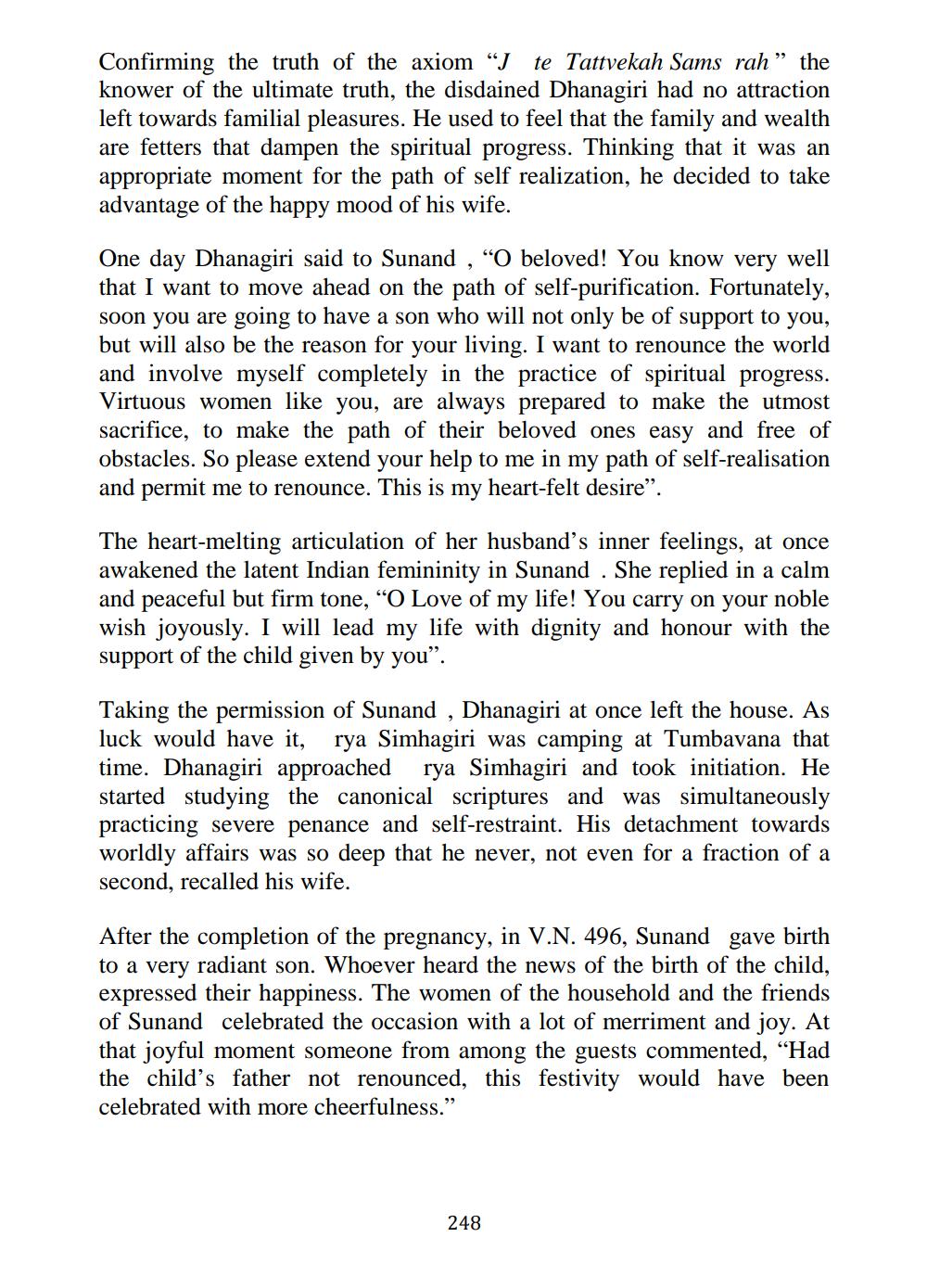________________
Confirming the truth of the axiom "I te Tattvekah Sams rah” the knower of the ultimate truth, the disdained Dhanagiri had no attraction left towards familial pleasures. He used to feel that the family and wealth are fetters that dampen the spiritual progress. Thinking that it was an appropriate moment for the path of self realization, he decided to take advantage of the happy mood of his wife.
One day Dhanagiri said to Sunand , “O beloved! You know very well that I want to move ahead on the path of self-purification. Fortunately, soon you are going to have a son who will not only be of support to you, but will also be the reason for your living. I want to renounce the world and involve myself completely in the practice of spiritual progress. Virtuous women like you, are always prepared to make the utmost sacrifice, to make the path of their beloved ones easy and free of obstacles. So please extend your help to me in my path of self-realisation and permit me to renounce. This is my heart-felt desire".
The heart-melting articulation of her husband's inner feelings, at once awakened the latent Indian femininity in Sunand . She replied in a calm and peaceful but firm tone, "O Love of my life! You carry on your noble wish joyously. I will lead my life with dignity and honour with the support of the child given by you”.
Taking the permission of Sunand , Dhanagiri at once left the house. As luck would have it, rya Simhagiri was camping at Tumbavana that time. Dhanagiri approached rya Simhagiri and took initiation. He started studying the canonical scriptures and was simultaneously practicing severe penance and self-restraint. His detachment towards worldly affairs was so deep that he never, not even for a fraction of a second, recalled his wife.
After the completion of the pregnancy, in V.N. 496, Sunand gave birth to a very radiant son. Whoever heard the news of the birth of the child, expressed their happiness. The women of the household and the friends of Sunand celebrated the occasion with a lot of merriment and joy. At that joyful moment someone from among the guests commented, "Had the child's father not renounced, this festivity would have been celebrated with more cheerfulness.”
248




